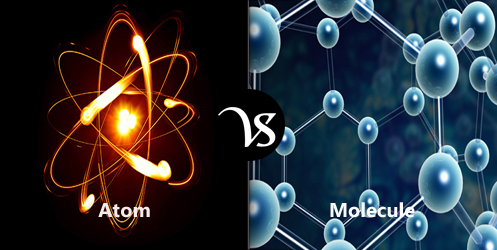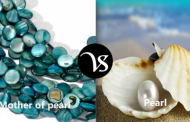 Atom:
Atom:
Atom is the smallest particle of an element which has the properties of an element. They are not visible to our naked eye. An atom has a nucleus which is surrounded by two or more atoms. Atoms exist independently. An atom is not stable by itself. Atoms are not bonded.
Molecule:
Molecules are the formation of the two or more atoms. Molecules are not visible to our naked eye but can be seen through the microscopes. Molecule is stable by itself. Molecules are the atoms that are bonded. Single atoms can make up a molecule which is known as noble gases. Molecules are divided into many atoms.
Differences:
| Basis | Atom | Molecule |
|---|---|---|
| Definition (www.oxforddictionaries.com) |
The smallest particle of a chemical element that can exist. | A group of atoms that are bonded together, representing the smallest fundamental unit of a chemical compound that can take part in a chemical reaction. |
| Synonyms | Crumb, fragment, minimum, bit and grain | Particle, fragment, minim, jot and unit |
| Antonyms | Whole and lot | Whole and lot |
| Types | The types of atom are:
|
The types of molecule are:
|
| History | An English Chemist and Mathematician – John Dalton was the first person to scientifically prove that matter consists of indivisible discrete particles. Dalton developed an atomic theory in 1803. Subsequently, Ernest Rutherford, a famous scientist of Briton developed a modern concept of the atomic structure. He stated that an Atom is composed of heavy nucleus in the center with a positive charge of electricity and negatively charged electrons surrounding it. | The term “molecule” originally meant an extremely minute particle,” and was coined by French philosopher Rene Descartes in the early 17th Century. It wasn’t used in modern scientific sense until Amedeo Avogadro (Avagadro’s Number) formulated his own theories in the early 1800’s. |
| Word origin | It was originated in Late 15th century: from Old French atome. | It was originated in Late 18th century: from French molecule. |
| Existence | It cannot exist independently. | It can exist independently |
| Pronunciation |
|
|
| Example in Sentence |
|
|





